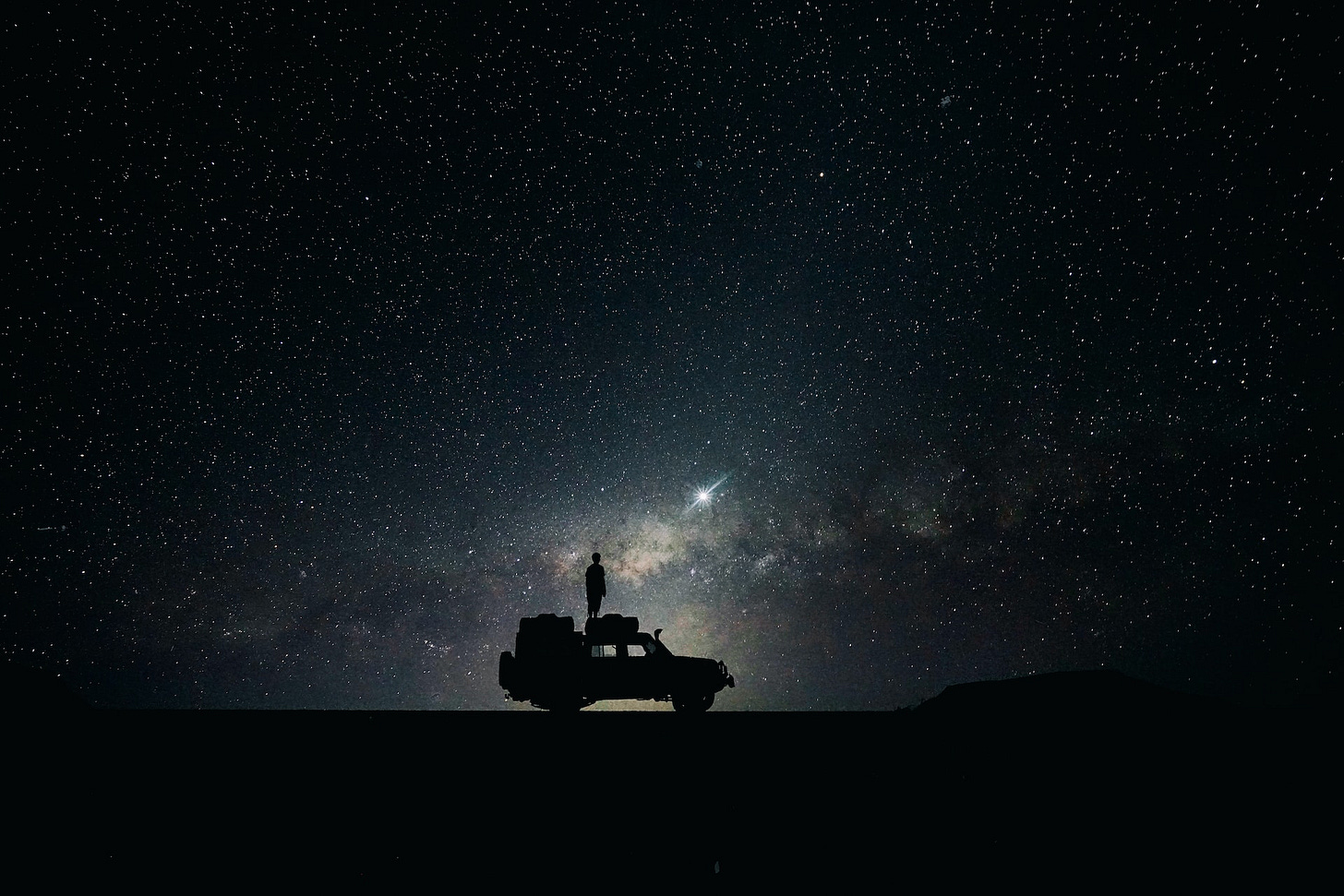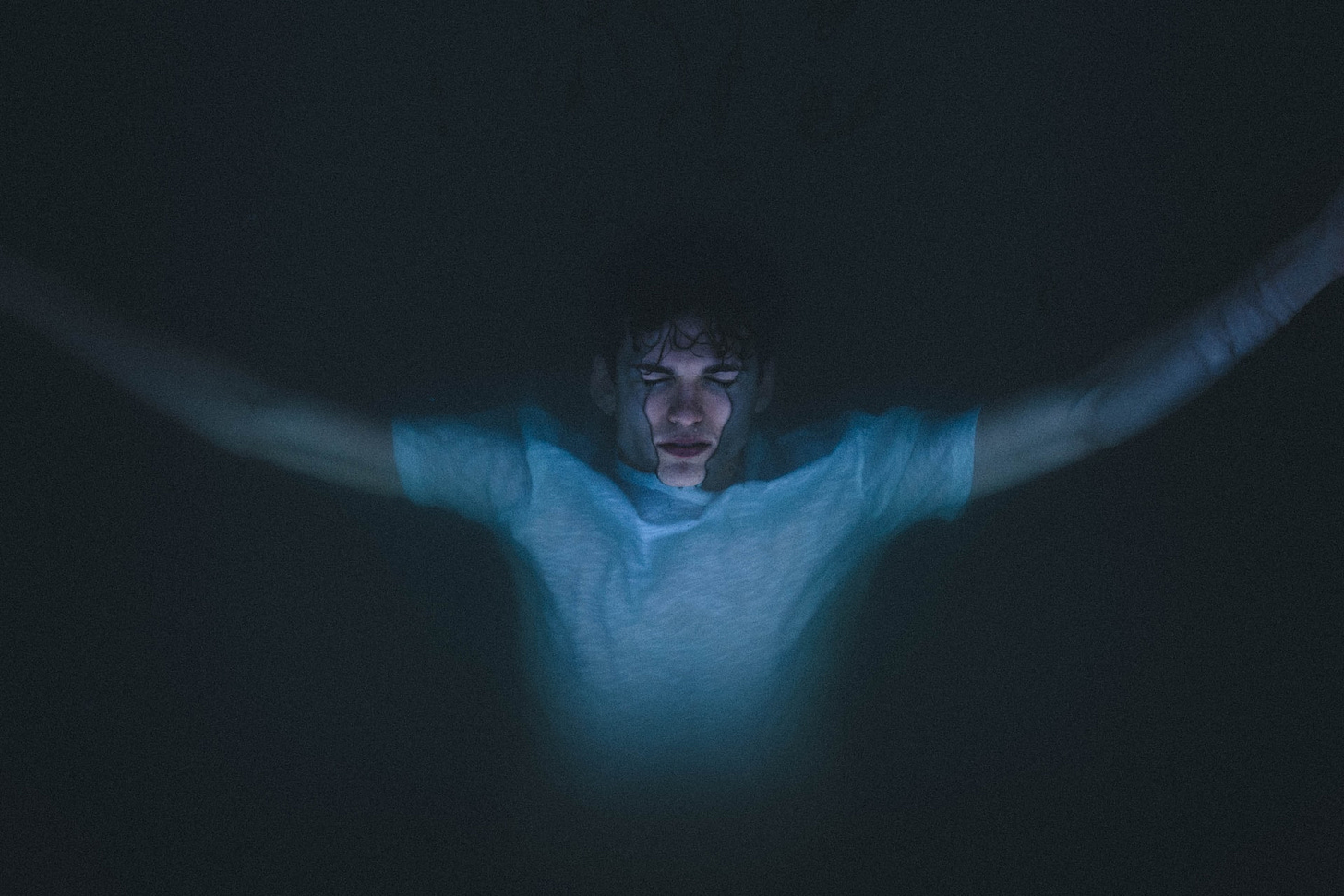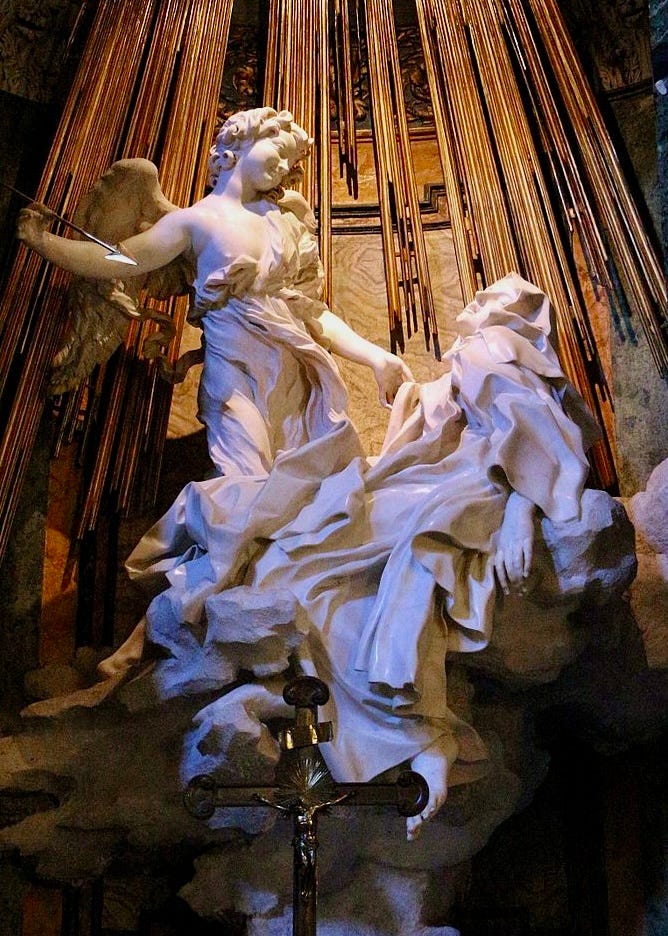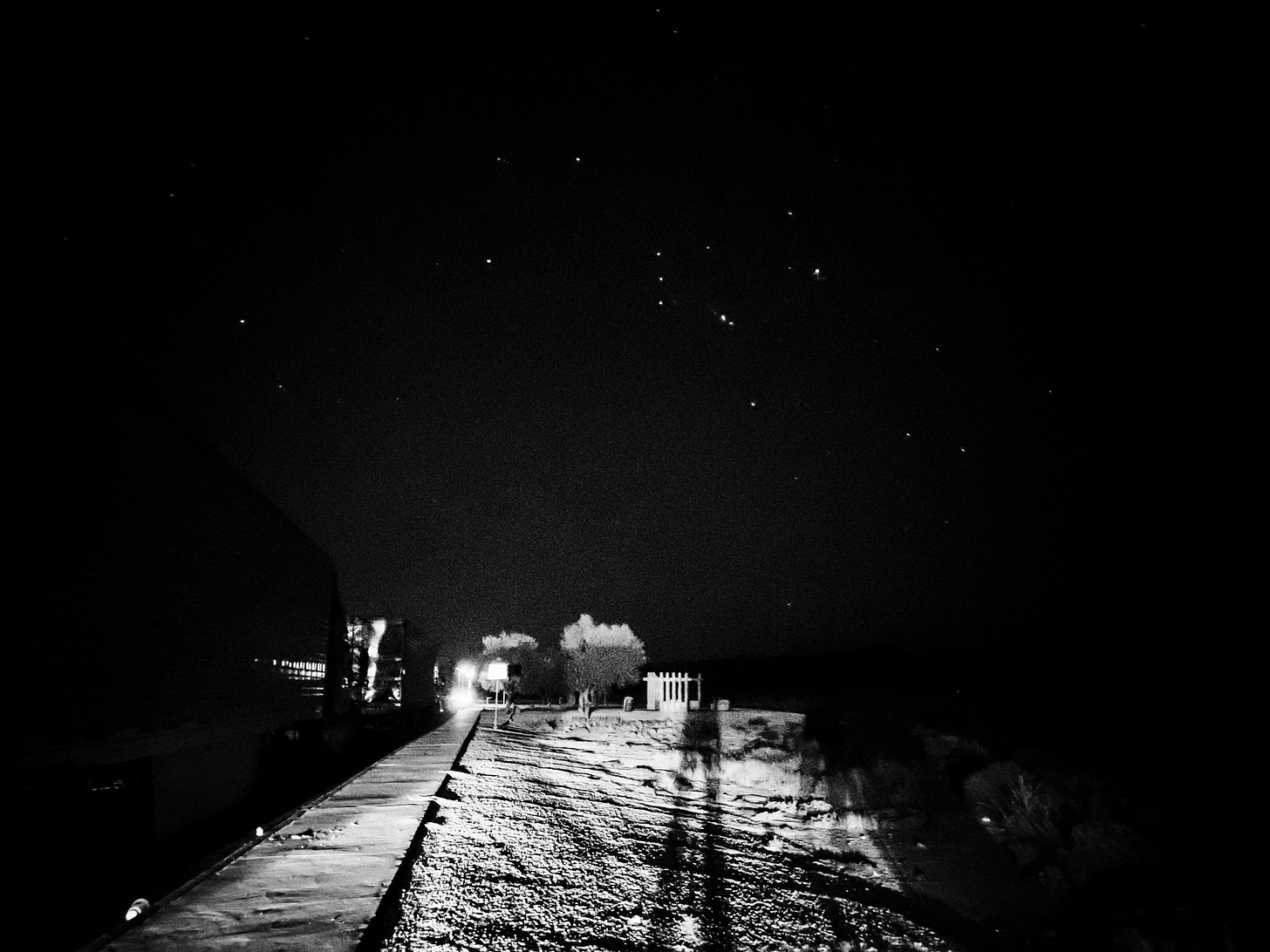Satori
Becoming possessed by Nut, the ancient Egyptian goddess of the sky, brought a sudden flash of understanding.
Warning: the following article discusses depression and suicidal ideation.
For a brief time in my life, I was a sailor in the U.S. Navy.
I was part of the first wave of servicemen deployed for what became known as Operation Desert Shield. My biggest concern back then wasn’t the deployment itself but being there for the birth of my son, who, by that point, was long overdue. His mother’s biggest concern was that, by the time our son was born, I would be long gone. With all the talk in the aftermath of Iraq’s invasion of Kuwait—the prospect of biological and chemical warfare—there were no guarantees that anyone deployed wouldn’t be at risk of not coming home. So, at her request, he was induced just so I could hold him and say goodbye. Hours later, I deployed.
The way I had left them behind stayed with me. In the brief moments I had for sleep, I would feel the pain of being away from them, only able to hold my son and his mother in my dreams. And when I woke up, it was in a panic, torn apart from them again, waking to the feeling that I was just an expendable pawn in a game of chess played by world leaders. Then came the moment when I stopped dreaming about them and instead found myself dreaming of work, as if I had never gone to sleep.
Not even in dreams could I find peace.
I prayed to God to make me numb, to save me from the soul-crushing depression that, one night, pushed me to take the precious opportunity I had for sleep and use it to go topside instead. I stood along the railing of the ship, looking at the dark waters stirring below. I thought maybe my family would be better off without me. It seemed better for them to collect any death benefits they’d be owed than for me to come back broken, which I feared the deployment would do.
I began to think the excruciating pain would go away if I just threw myself overboard. The feeling of drowning would be brief and passing, and then it would be done. I would be more than numb.
The impulse was instant, and what held me back from fully tossing myself over was the memory of my son opening his eyes to look at me for the first time, the memory of cutting the cord after he was born, and the look in his mother’s eyes—filled not only with tears but with joy that together we had created this beautiful child.
I pushed myself away from the railing. Instead of going to my rack, I volunteered to take the time left over from my friend’s watch in the combat information center. I didn’t want those intrusive thoughts to push me topside again, staring at the darkness in the waters below.
I fought the feeling every night until the day came when we were given permission to sail away from our patrol area and head to Hurghada, Egypt, for reprovisioning. While there, we were granted a break from the frantic pace that had everyone feeling the same way I was, but for their own personal reasons.
During our shore leave, we had the chance to take a tour of Luxor—the site of ancient Thebes. Before sunrise that day, those of us who had signed up boarded charter buses, escorted by Egyptian security forces through the vast desert with mountainous backdrops, into the lush green area along the Nile River. By late morning, we arrived. Our tour group boarded a ferry and then another bus, which took us into the Valley of the Kings.
Our guide led us into the one tomb that was open for us to explore: Ramesses VI.
As we made our descent, the guide pointed out graffiti scratched and scrawled in Greek and Latin lettering by soldiers serving in ancient armies—men like us who were part of another foreign force. I started to imagine what these soldiers might have felt. Were they thinking of the families they had left behind? The deeper we descended, the more I felt we were traveling back in time, with more etching and scrawling until, at the bottom of the passage, we entered the burial chamber and looked up at the most beautiful thing I had ever seen in my life:
A bright, colorful painting of Nut, the Egyptian goddess of the sky, stretched from one end of the ceiling to the other.
With all the stress and fear in my life at the time—along with my day-in, day-out routine where I battled, with everything in me, the pain of being away from my newborn son, away from his mother, whom I knew was battling postpartum depression and desperately needed my help—to see this sight of the sky goddess, painted with such vibrant colors that I could see her moving... For the first time in my life, I understood my place in the universe.
With this sudden flash of understanding—this satori—all the pain of my separation from my family, all the depression that had pushed me to almost throw myself overboard, meant nothing. Nothing at all! Problems come and go, and we are born into the world, and we pass from it, but the deeply immense beauty of this painting of Nut, the sky goddess, will exist for thousands more years. And for a brief second, I grasped the enormity of what eternity truly means.
Since then, whenever I think of that moment, I think of Teresa of Avila and her words:
Let nothing trouble you,
Let nothing make you afraid.
All things pass away.
God never changes.
Patience obtains everything.
God alone is enough.
Later that evening, at dusk, our group returned to Luxor and entered the Temple of Karnak. We were surrounded by Scandinavian tourists, all looking up with us at how the temple’s high pillars rose above us, with tons of stone slabs resting atop them, seemingly floating. Then, the call to prayer sounded, the muffled voice filling the air.
It was the first time in my life I had ever heard the Adhan. Hearing it—seeing the wide, open smiles and bright eyes of all the tourists around me, their faces darkened by the night—and with that flash of understanding from the sky goddess still twisting in my heart, the melodious call to prayer cracked open my soul, and out poured all this love.
Suddenly, I was in ecstasy, where I wanted nothing more in the world—more than to be home with my son and his mother, more than I wanted to be away from the ship and my anger and fear—than to kneel and show my devotion to God, and only God, and surrender.
I don’t remember anything else after that. I don’t remember the journey back to Hurghada or returning to the ship. Looking back on that memory, it feels like the experience consumed everything else from that evening.
Days later, we were underway again. I couldn’t work the way I had before, with the full focus the deployment demanded. I was still in ecstasy. At night, instead of choosing to sleep, I would go topside to the highest point I could reach on the ship and lie flat against the rough deck, looking at the night sky. As I looked up, I felt connected, knowing that under these same stars, billions of other human beings were like me—with their own joys and sorrows, their own lives, their own problems and struggles, their own triumphs. I was not alone.
I continued to look up at the bright, colorful Milky Way Galaxy, stretching from horizon to horizon, and saw Nut, the sky goddess, stretched out just the same as I had seen in the tomb.
Not long before that, I had wanted to throw myself overboard. But now I was drunk from the sudden understanding of life, from the sensation, and I wanted to live more than ever. I wanted everything in me to answer this summons from the universe to live, and in answering the call, I was determined to seethe and burn while living it.
So much has happened since then that’s not worth getting into, other than to say that my worst fears at the time came true. I was injured—not once, but twice. My son’s mother left me. Because of the PTSD from my injuries, I struggled to connect with my son and with everyone else for the most part—until, through writing, I experienced that flash of understanding I had gained from my visit to the Valley of Kings, to Thebes.
This is why, in my older age, I live near the vast night skies of New Mexico and West Texas. Every time I need to be reminded of the eternal, especially when the PTSD becomes so severe that I feel as though I want to toss myself over into the darkness of death and end the pain, I drive out there and feel the relief of my smallness when compared to the night.1
If I am small, then my problems are smaller, and so is the pain from my PTSD-fueled nightmares. I become happy again.
And that is what I am now, at this moment, with the coming anniversary of an Alive Day.
Happy.
My novel The Desert Road of Night, which explores many of the themes in my short stories, poems, and personal essays like this one, is available now on Amazon, Barnes & Noble, Smashwords, and most major retailers.
Want more? My Instagram isn’t where I write, but it’s where I share the images, music, and moments that shape the stories I tell. If you’re into the culture, the vibe, and the history behind these worlds, follow me @viktor.e.mares.
If you’re in need of help, please reach out and dial 988 or 1-800-273-8255, so you can live to fight another day. I promise you, your life means everything to me and to the people around you who love you. Don’t give up!









